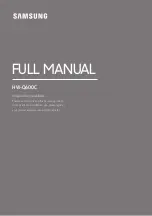
6
Field contact circuits
The electrical contacts of the devices sensing the
process condition must be potential-free while
the annunciator unit itself generates the 48 V dc
field contact voltage. This specification also
applies to the remote control inputs.
The power unit supplying voltage to the field
contacts also provides a full galvanic isolation
between the field contact circuits and the elec-
tronic circuits of the annunciator unit it self as
well as the system earth. The channel inputs are
provided with transient suppression circuits and
input voltage limiters.
The alarm channels can be individually pro-
grammed for operation from normally closed
(NC) or from normally open (NO) contacts.
The annunciator is provided with an integrated
field contact voltage supervision function. When
a fault is detected the LED indicator marked
"FAULT" on the front panel is switched on and
internal supervision output relay operates. The
fault message can also be transmitted over the
serial communication link to the higher system
levels.
Fig. 3. Principle of alarm channel input.
Alarm channel
functions
An alarm channel is composed of a number of
functional blocks illustrated below. The lists of
variables underneath some of the blocks indi-
cate that a certain parameter can be selected
from a set of given values, i.e. the parameter can
be programmed. The selected parameter is shown
in the numerical display when called up during
the programming.
TRANSIENT
SUPPRESSION
To alarm
channel
48 VDC
From the internal
supply module
0 V
48 V
Field
contact
Galvanic isolation
SEQUENCE
LOGICS
Reflash B
&
Reflash A
Interlocking
output (0)
Ack.
Reset
1
Alarm indicator
Audible alarm
Reflash A
interlocking
input (1)
Channel
interlocking
input (2)
FIELD
CONTACT
SELECTION
INPUT DELAY
RESET DELAY
48 V
Field
contact
Galvanic isolation
and transient
suppression
0 = NO field contact
1 = NC field contact
2 = NO field contact,
no return function
3 = NC field contact,
no return function
4 = NO and NC field
contact
5 = pulse counter,
counts on closing
function
6 = pulse counter,
counts on opening
function
7 = pulse counter,
counts on both
closing and opening
function
0 = 5 ms
1 = 20 ms
2 = 100 ms
3 = 1 s
4 = 5 s
5 = 20 s
6 = 60 s
7 = 160 s
0 = 5 ms
1 = 20 ms
2 = 100 ms
3 = 1 s
4 = 5 s
5 = 20 s
6 = 60 s
7 = 160 s
-
0 = sequence 0-4
1 = sequence 0-4,
audible alarm
also at dis-
appering alarm
2 = field contact
following
Silence
Fig. 4. Block schemating diagram for an alarm channel.







































